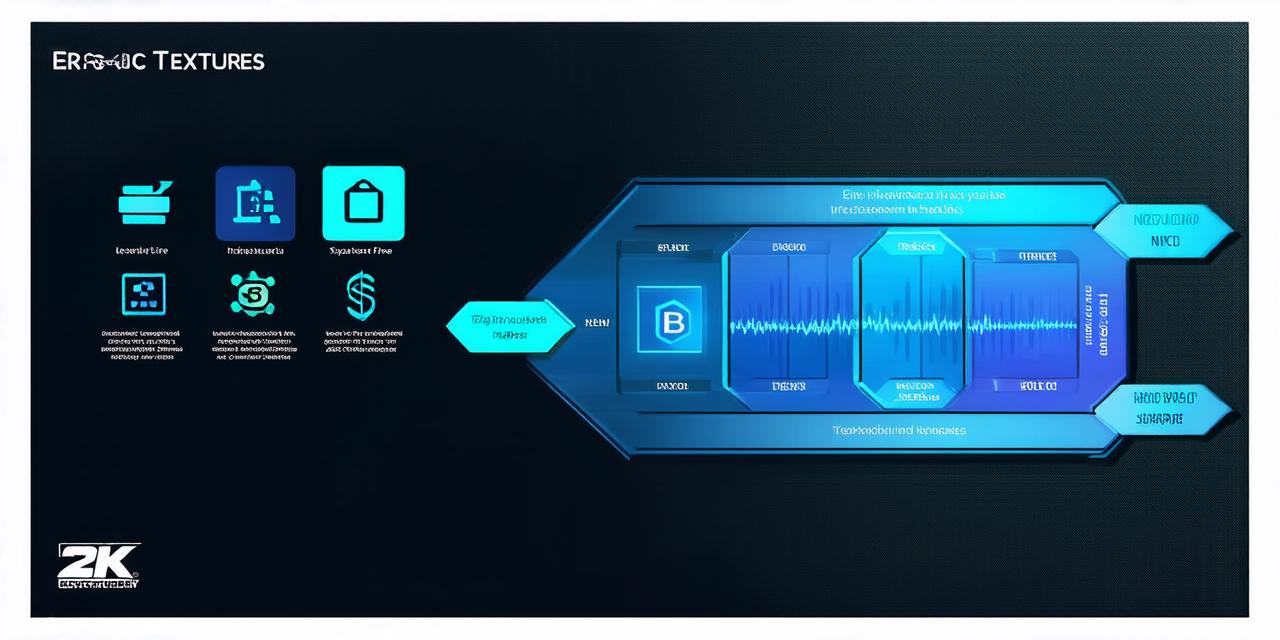Introduction
Blockchain technology has gained significant traction in recent years as a decentralized platform for storing and transferring data securely. The inherent nature of blockchain makes it an ideal solution for industries that require transparency, immutability, and security of data. Encryption is one of the key mechanisms used to achieve this security on blockchain networks.
Encryption in Blockchain
Blockchain networks are designed to be decentralized, which means there is no central authority controlling the network. Instead, the network is managed by a distributed ledger that records all transactions and data stored on the network. This makes it difficult for hackers to gain access to sensitive data stored on blockchain networks. However, encryption is used to further secure this data and protect it from unauthorized access.
Encryption in Blockchain
can be implemented in different ways, such as public-key cryptography, symmetric-key cryptography, or hash functions. Public-key cryptography involves the use of two keys – a public key and a private key – to encrypt and decrypt messages respectively. This ensures that only the intended recipient can access the message. Symmetric-key cryptography, on the other hand, uses the same key for both encryption and decryption. This makes it faster but requires secure distribution of the key. Hash functions are used to generate a fixed-length string from an input string, making it difficult to reverse the process and retrieve the original data.
Encryption in Blockchain
provides several benefits, including:
- Confidentiality: Encryption ensures that sensitive data stored on blockchain networks is kept confidential and protected from unauthorized access. Only those with the right decryption key can access this data.
- Integrity: Encryption also ensures the integrity of the data stored on blockchain networks. Any tampering with the data will result in an invalid encryption key, making it difficult for hackers to access the data.
- Authentication: Encryption is used to authenticate users on blockchain networks. Users must provide a valid decryption key to access the network and its data.
- Non-repudiation: Encryption ensures non-repudiation of transactions on blockchain networks. Once a transaction is recorded on the blockchain, it cannot be altered or deleted, making it difficult for users to deny having made the transaction.

Case Study: Bitcoin Encryption
Bitcoin is one of the most well-known blockchain-based cryptocurrencies in use today. It is also an excellent example of how encryption plays a crucial role in securing data on blockchain networks. Bitcoin uses public-key cryptography to encrypt and decrypt transactions. Each user has a unique pair of keys – a public key and a private key – that are used for this purpose. The public key is used to receive transactions, while the private key is used to send transactions.
When a user wants to send bitcoins to another user, they must provide the recipient’s public key. This public key is then used to encrypt the transaction details and create a digital signature that binds the transaction to the sender’s private key. Once the recipient receives the digital signature, they can use their private key to decrypt the transaction details and confirm that the transaction is valid.
Summary
Encryption plays a crucial role in securing data on blockchain networks. Its use ensures the confidentiality, integrity, authentication, and non-repudiation of transactions stored on these networks. Blockchain technology has made it possible to create decentralized platforms that can store and transfer data securely, and encryption is one of the key mechanisms used to achieve this security. As blockchain technology continues to evolve and gain traction in various industries, it will be interesting to see how encryption is used to further secure data on these networks.
FAQs
1. What is encryption in blockchain?
Encryption refers to the process of encoding messages or data so that they can only be accessed by those with the right decryption key. In blockchain, encryption is used to secure data stored on distributed ledgers and protect it from unauthorized access.
2. How does encryption work in blockchain?
Encryption in blockchain can be implemented using different methods such as public-key cryptography, symmetric-key cryptography, or hash functions. Each method has its advantages and disadvantages, and the choice of encryption method depends on the specific requirements of the network.
3. What are the benefits of encryption in blockchain?
Encryption provides several benefits, including confidentiality, integrity, authentication, and non-repudiation of data stored on blockchain networks. It also helps to prevent unauthorized access to sensitive data stored on these networks.
4. Can encryption be hacked?
While encryption is a powerful security mechanism, it is not foolproof. There have been cases where encryption has been cracked by skilled hackers using advanced techniques such as brute force attacks or side-channel attacks. However, with the right implementation and security measures in place, encryption can provide strong protection for data stored on blockchain networks.



